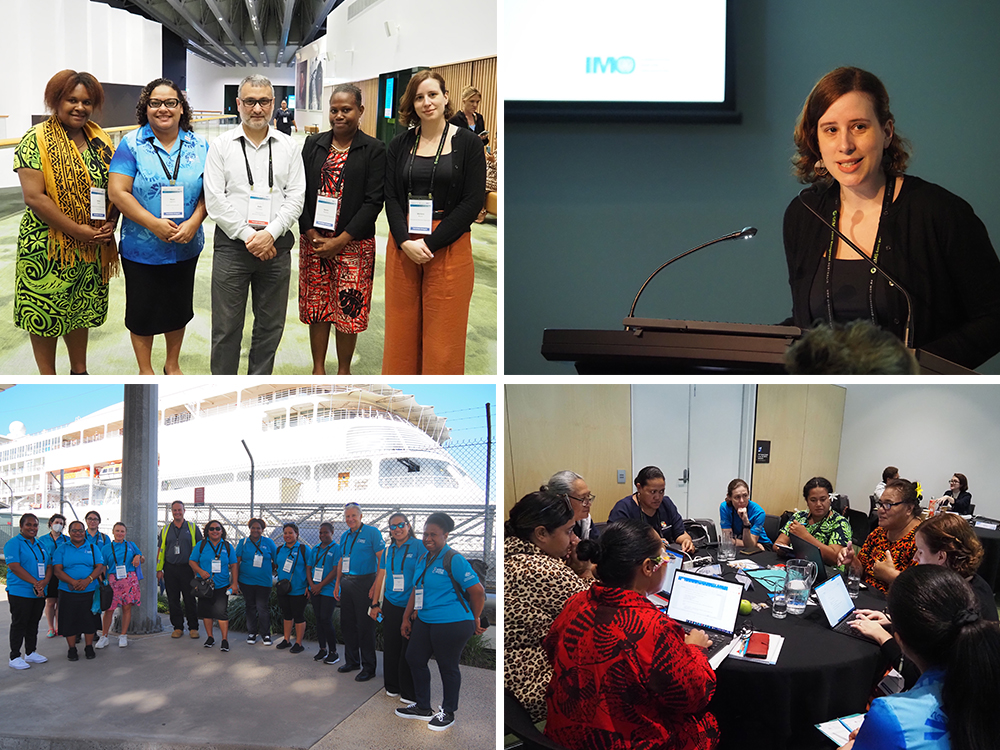A two-pronged event to address the unique maritime challenges facing the Pacific region has taken place in Cairns, Australia. A Pacific Search and Rescue (PacSAR) Workshop was held concurrently with the Pacific Women in Maritime (PacWIMA) Conference (27 February to 3 March).
For the first time since the COVID-19 pandemic, search and rescue (SAR) specialists, seafarers and senior women in the maritime sector gathered to discuss Pacific SAR priorities and the promotion of women’s participation in the industry.
The dual event, involving 85 delegates from Australia and Pacific nations, was jointly hosted by the Australian Government in partnership with IMO and the Pacific Community (SPC), with additional support from SPC’s Pacific Women Lead Program.
The theme of the Regional Search and Rescue Workshop was to “reconnect Search and Rescue in the Pacific region”. Three years on from the last such event in Hawaii, it provided an overdue opportunity for industry leaders and SAR practitioners from across the region to build relationships, strengthen networks, share experiences, and learn from one another to develop best practices in search and rescue matters.
The workshop focused on ensuring SAR capability continues to be developed using new technology to boost efficient SAR response, coordination, and prevention, as well as through practical exercises.
Pacific SAR authorities were invited to reaffirm their commitment to the Pacific SAR Technical Arrangement for Cooperation which provides a framework for consultation and cooperation on lifesaving in the Pacific Ocean. Countries were also encouraged to become signatories to the Arrangement.
Dr. B. Sitki Ustaoglu, Head, Asia and Pacific Section at IMO, called for more to be done in the region on ratification of and accession to the SAR Convention, and encouraged participation in the work of IMO: “There are still a considerable number of Pacific States that have not yet ratified the SAR Convention...We can see the progress, although there is still considerable room for improvement,” he said.
At the Regional Conference for Pacific Women in Maritime, Mariana Noceti, IMO’s Principal Programme Assistant, Women in Maritime (WIM) Programme, addressed a session that considered that scheme and how to raise public awareness of the role of communities in the context of SAR.
Describing the benefits of having women in the workforce as obvious, she called for “creative thinking to navigate maritime towards a more sustainable, more diverse, and more inclusive green future.”
Ms. Noceti highlighted IMO’s commitment over three decades to increasing women’s representation across the maritime workforce: “We have committed to this important cause - and we are seeing these efforts bear fruit”, she said.
The conference acknowledged progress made in implementing the 2020-2024 Regional Strategy for Pacific Women in Maritime since its endorsement at the Second Regional Conference for Pacific Women in Maritime held in Papua New Guinea in 2018.
PacWIMA members at the Cairns conference agreed to seek the endorsement of the region’s Energy and Transport Ministers for the development of a new Strategy for 2025-2030. In addition, they agreed to promote the Adopt a Ship Programme which advocates for the maritime sector as a profession to primary and secondary school pupils. It also raises awareness of safety at sea and the protection of the marine environment.
